Winter Olympics: Lizzy Yarnold to consider skeleton future after retaining title
- Published
- comments
Yarnold retains Olympic skeleton title
XXIII Olympic Winter Games |
|---|
Venue: Pyeongchang, South Korea Dates: 9-25 February |
Coverage: Watch live on BBC TV, Red Button, Connected TVs, BBC Sport website and mobile app. Full coverage times |
Britain's Lizzy Yarnold is to consider her future after retaining her Olympic skeleton title at Pyeongchang 2018.
The 29-year-old became the first Briton - and the first skeleton athlete - to win successive Winter Games golds when she claimed victory on Saturday on a historic day for Team GB.
Asked about her future on Sunday, Yarnold said: "I need to get over my chest infection first.
"I'll take a break and get back to you."
Yarnold is now the most decorated British Winter Olympian - above Jayne Torvill and Christopher Dean, and Jeanette Altwegg - who have one gold medal and one bronze each in figure skating.
"As each minute passes it becomes more of a reality, but it still is an unbelievable series of events, of everything just coming together," added Yarnold, who received her medal on Sunday evening.
"There's a whole dream of if everything goes right. 'If I do this, if I get this corner, if that transfers, if the speed comes', everything will work magically'.
"I guess now it's just relief that everything did go to plan."
Five things you may not know about Yarnold:
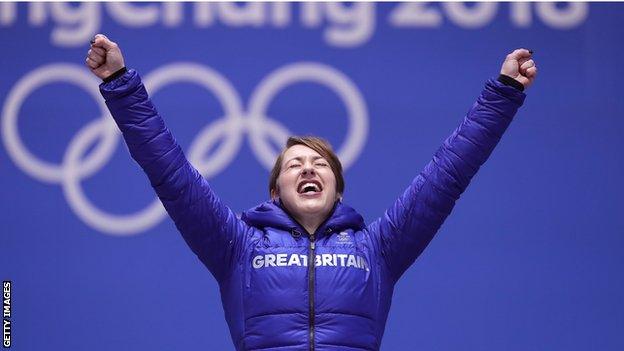
Lizzy Yarnold steps on the podium to receive her second Olympic gold medal
Yarnold's sled is called Mervyn, after a former work colleague who sponsored her when she needed money to continue competing.
She hoped to become a modern pentathlete before being 'talent identified' and encouraged to take up skeleton.
Yarnold often listens to grime music before her races. She listened to Dizzee Rascal moments before her first Olympic triumph in 2014.
The 29-year-old's hobbies are knitting and listening to The Archers.
Yarnold is known by other members of the British skeleton squad as 'She-Ra' - a cartoon character who is the Princess of Power.
Winter Olympics: BBC commentators react to Yarnold & Deas medals
Fellow Briton Alex Coomber, who won Olympic skeleton bronze in 2002, praised Yarnold's "mental grit" and told BBC Sport: "No other female has tried to retain this title and one of the reasons is because it is so hard.
"What does she do? I'm sure if Lizzy decides she's achieved everything she can, she will find something else to do and succeed at that."
Yarnold posted a total time of three minutes 27.28 seconds to finish nearly half a second ahead of Germany's Jacqueline Loelling in second, as fellow Briton Laura Deas took third spot.
The gold and bronze, in addition to Izzy Atkin's bronze in the ski slopestyle, meant Britain had won three individual medals in one day at a Winter Games for the first time - eclipsing the two won in 1924.
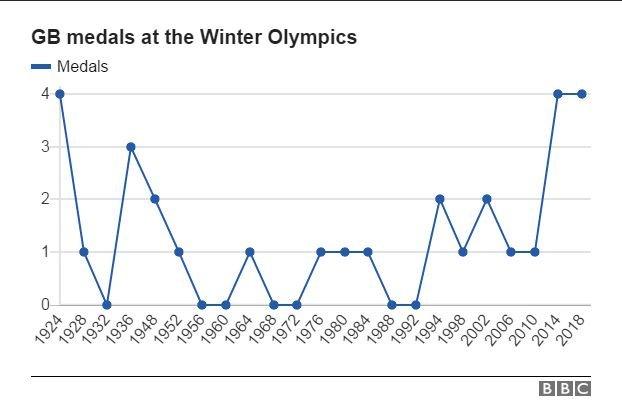
GB's medal target is five - to make it their most successful Winter Games.
'We're competitors on the track, but friends off it'
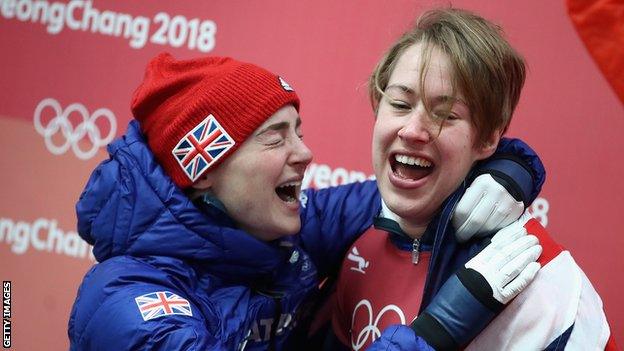
Laura Deas (left) and Lizzy Yarnold were in high spirits after finding out they had both won a medal
British pair Yarnold and Deas have been competing against each other on the World Cup circuit during the past few years, but the Olympic gold medallist highlighted the importance of their friendship.
"We keep each other going with cups of teas and chats along the way," Yarnold told BBC Sport. "The night before my run Laura brought me a massive tub of ice cream so perhaps that helped with my sore throat.
"It's not only in the Olympics [we support each other], it's in every single race - Laura is a phenomenal push athlete so I know I'm always behind her on the start and we always push each other.
"When we come home we share tactics. I know I wouldn't have been on that podium without Laura."
A tearful Yarnold, who said she spent Sunday morning knitting, added: "It's a good privilege to share this moment with one of my best friends in the world. Thank goodness we pushed each other and now we can have a holiday."
Deas relived the moment the pair knew they had both won a medal, and the joy of sharing the medal podium together.
"The emotions were all over the place," the Welshwoman told BBC Sport. "I knew I was in third position with three more runs to go.
"I could barely watch the screen I was so nervous. It was amazing, I couldn't quite realise what had happened. We just sort of screamed at each other.
"I always believed we could both be standing on the podium. We're competitors on the track, but friends off it. I got emotional yesterday. Not only were we sharing the moment but we were on the podium together. I could not be happier."
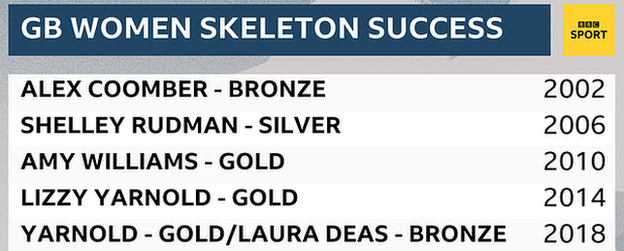
Yarnold's path to double Olympic glory
1988: Born 31 October in Sevenoaks, Kent.
2008: Joins the Great Britain skeleton programme after attending a Girls4Gold talent search programme.
2010: Starts competing for Britain, winning two races on the third-tier Europa Cup circuit.
January 2012: Wins gold in only her second World Cup race in St Moritz - and one week later is crowned world junior champion in Innsbruck.
February 2012: Wins the bronze medal at the World Championships in Lake Placid.
January 2014: Crowned overall World Cup champion after dominating the 2013-14 season, winning four of the eight races and finishing on the podium three times.
February 2014: Yarnold wins her first Olympic gold, beating her nearest rival, Noelle Pikus-Place, by 0.97 seconds over the four runs.
December 2014: Complains of dizziness and blacking out despite a World Cup win in Lake Placid. She subsequently withdraws from the following World Cup race in Calgary after experiencing the same issue. Tests in 2017 revealed she has inner-ear damage and issues over her balance and orientation.
March 2015: Wins her first World Championships gold in Winterburg, Germany. She dominates the event to finish a clear 0.67 seconds ahead of home favourite Jacqueline Loelling.
September 2015: Announces her decision to take a year-long break from her sport, complaining of "emotional fatigue" - but says she has every intention of returning in time to defend her Olympic title.
November 2017: Achieves her only podium placing of a relatively disappointing World Cup season when she finishes third in the opening race of the season.
February 2018: Wins a second women's skeleton gold and becomes the first Briton to retain a Winter Olympic title.
- Published16 February 2018
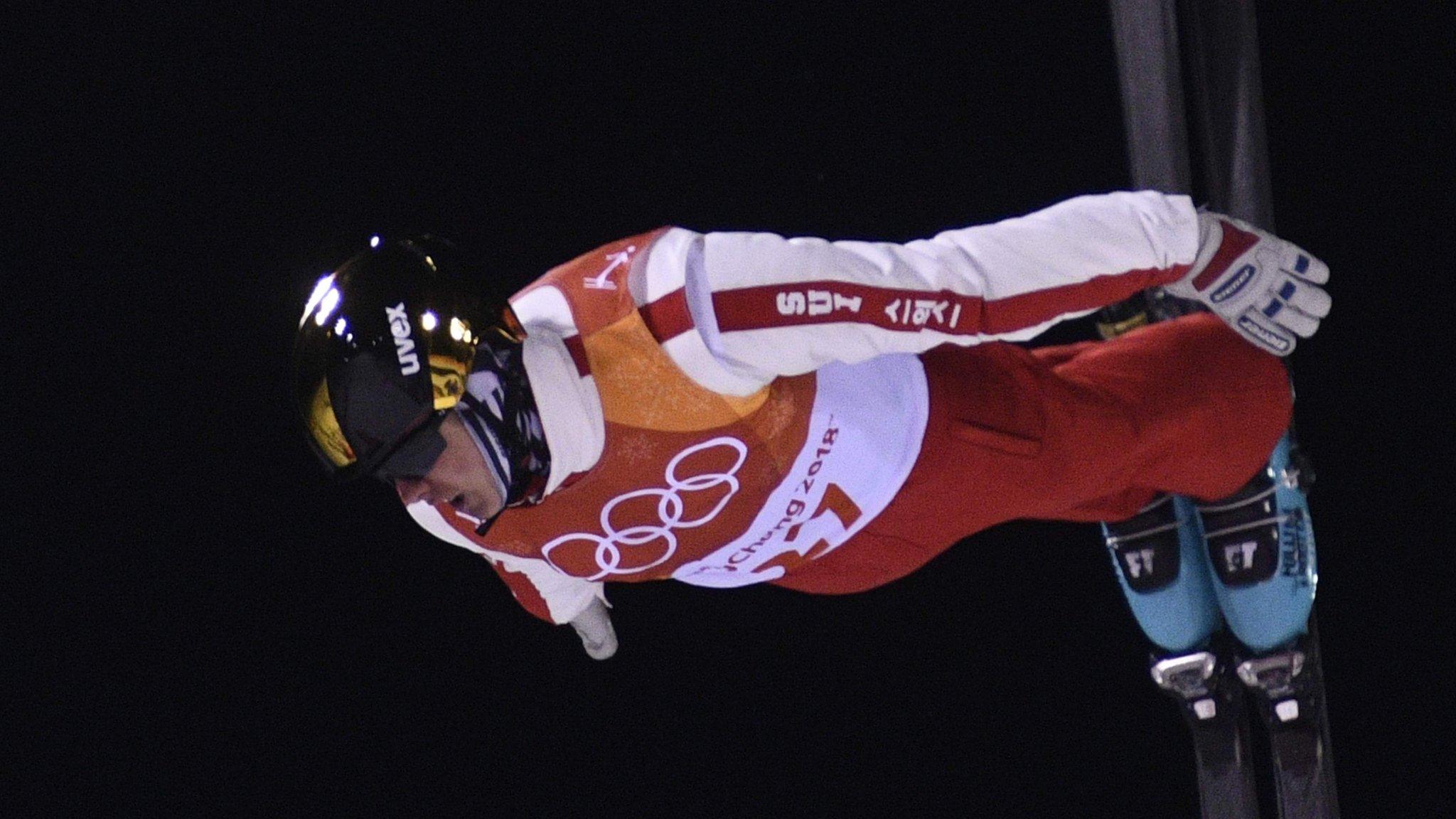
- Published18 February 2018
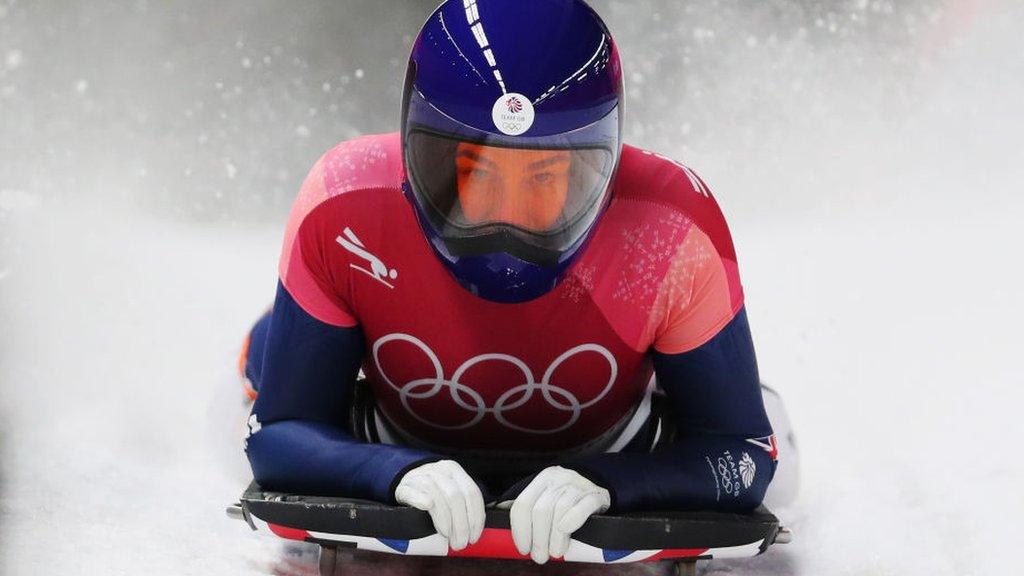
- Published17 February 2018
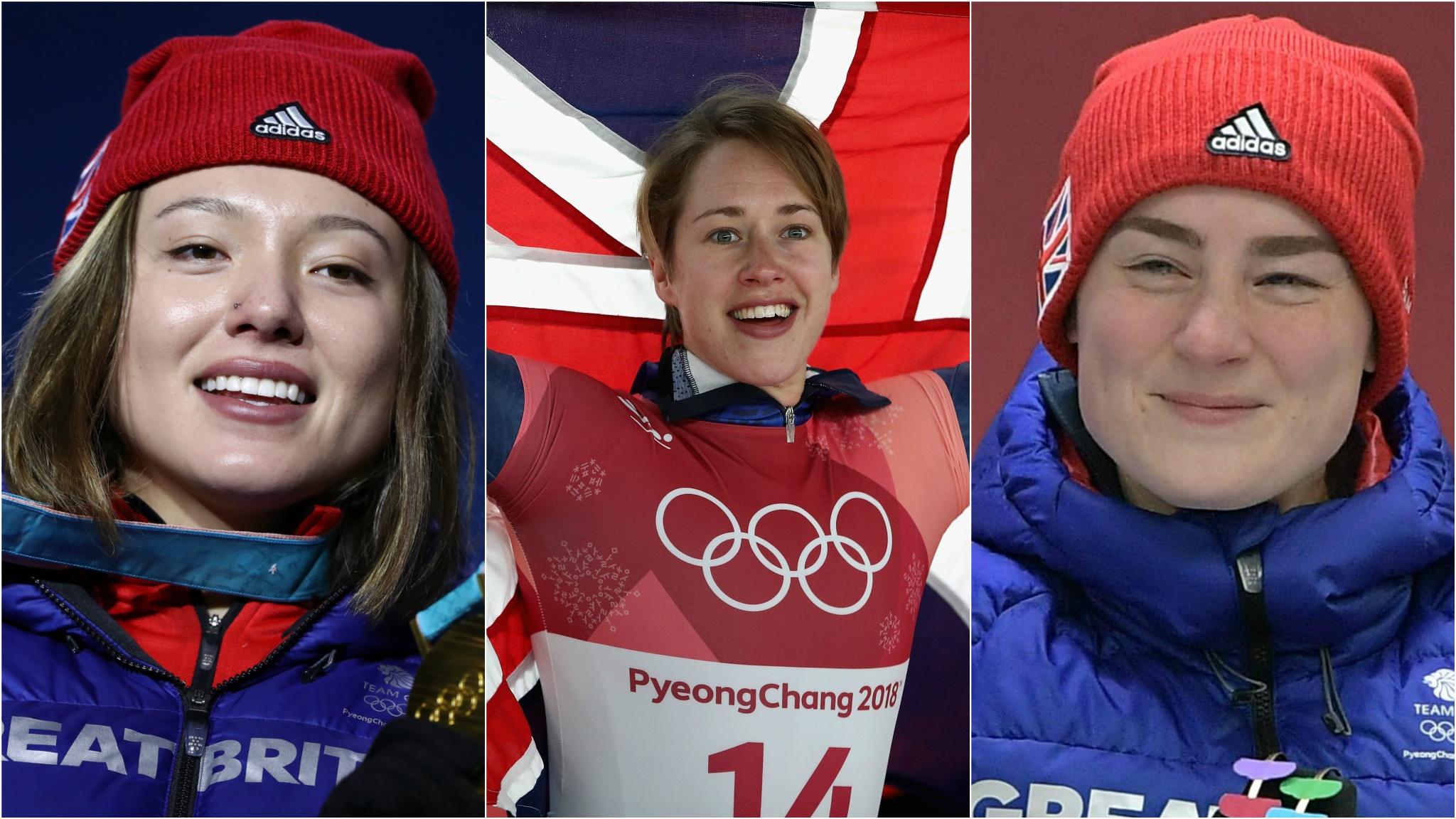
- Published22 February 2018
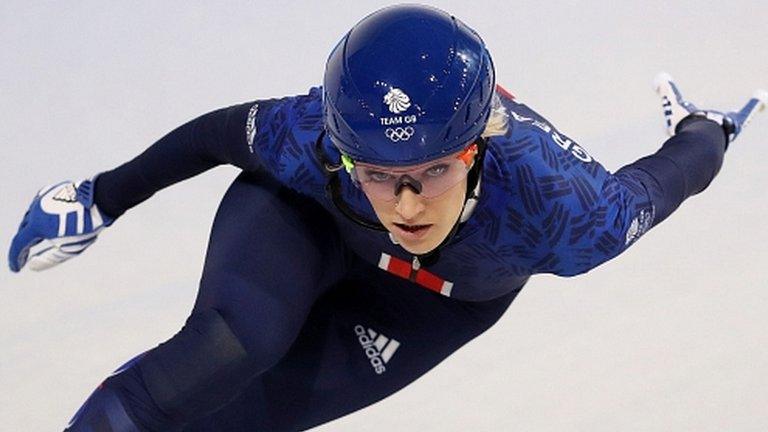
- Published24 February 2018
